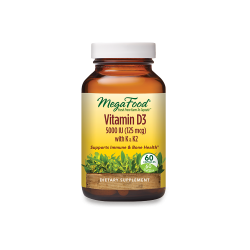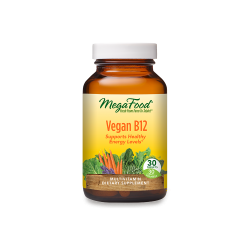The supplement industry is estimated to generate a revenue of 37 billion dollars per year just in the US alone and continues to grow every year. Being such a lucrative market, companies are trying to churn the marketing machine to convince you at every price that you depend on their products to be in good health. What is the truth? Are those products really the key for perfect health, or are they only a marketing hype?

Dietary Supplement Efficacy
A recent meta-analysis reviewed 84 studies in order to find an answer to this question. The results were astonishing. Although the study found a slight decrease in cancer risk for using a multivitamin supplement, there was no statistically significant benefit for cardiovascular health nor for all-cause mortality. Beta carotene supplements showed even a slightly increased risk of lung cancer and cardiovascular mortality. The study also concluded that vitamin E supplements could possibly increase your risk of hemorrhagic stroke and calcium supplements could increase your risk of kidney stones.1)O’Connor EA, Evans CV, Ivlev I, et al. Vitamin and Mineral Supplements for the Primary Prevention of Cardiovascular Disease and Cancer: Updated Evidence Report and Systematic Review for the US Preventive Services Task Force. JAMA. 2022;327(23):2334–2347. doi:10.1001/jama.2021.15650
Another study done in 2011 observed the supplementation status of 38,772 elderly women in Iowa and found actually an increase in mortality for those who used multivitamins and a number of other supplements. Only calcium supplementation was associated with a slight increase in longevity.2)Mursu J, Robien K, Harnack LJ, Park K, Jacobs DR. Dietary Supplements and Mortality Rate in Older Women: The Iowa Women’s Health Study. Arch Intern Med. 2011;171(18):1625–1633. doi:10.1001/archinternmed.2011.445
The conclusion: For a healthy person, your supplements are probably not worth their money. As a matter of fact, you are probably better off spending your money on healthy food. There are numerous studies that will show the benefits of a healthy balanced diet on your health and well-being.

Harmful Supplementation
Like with most anything, the difference between benefit and harm lies in the dosage. Some vitamins and minerals can be harmful when the dosage is too high. When it comes to vitamins, there is a significant difference between water-soluble and fat-soluble vitamins.
Water soluble vitamins like vitamin C and the B complex are easily eliminated with the urine when levels are higher than needed. Excessive vitamin C can cause you some digestive issues, but beyond that you will not have much problems with overdosing water-soluble vitamins.
All other vitamins are fat-soluble and the body has no good mechanism to get rid of any excess. Vitamin D toxicity is rather rare and will occur only with extremely high doses. Vitamin A toxicity at the other hand is pretty common.
Vitamin A, C and E are antioxidants that are found in fruits and berries and are known to protect against several diseases, including cancer. Randomized trials with smokers showed though an increased risk for lung cancer for those who took beta carotene supplements, much to the contrary that the researchers expected.3)The alpha-tocopherol, beta-carotene lung cancer prevention study: design, methods, participant characteristics, and compliance. The ATBC Cancer Prevention Study Group. Ann Epidemiol. 1994 Jan;4(1):1-10. doi: 10.1016/1047-2797(94)90036-1.
Albanes D et.al. Alpha-Tocopherol and beta-carotene supplements and lung cancer incidence in the alpha-tocopherol, beta-carotene cancer prevention study: effects of base-line characteristics and study compliance. J Natl Cancer Inst. 1996 Nov 6;88(21):1560-70. doi: 10.1093/jnci/88.21.1560.
A meta-analysis tried to determine the effect of antioxidant supplementation on mortality. They found that beta carotene, vitamin A and vitamin E supplements all increased mortality risk, while vitamin C and selenium supplements showed no significant change in mortality. The quintessence of all those studies are, that antioxidant supplementation generally tend to be harmful.4)Bjelakovic G et.al. Mortality in randomized trials of antioxidant supplements for primary and secondary prevention: systematic review and meta-analysis. JAMA. 2007 Feb 28;297(8):842-57. doi: 10.1001/jama.297.8.842.
The problem actually seems to appear when antioxidant doses are higher than naturally found in our food. For example, wheat germs have the highest concentration of vitamin E in our foods, yet the dosage used in the trials were 10 times higher. Seems that high doses of antioxidants are causing the opposite of the desired effect. Pregnant women should be especially cautious about Vitamin A supplements, since excessive dosage can lead to congenital birth defects.5)Rothman KJ, Moore LL, Singer MR, Nguyen US, Mannino S, Milunsky A. Teratogenicity of high vitamin A intake. N Engl J Med. 1995 Nov 23;333(21):1369-73. doi: 10.1056/NEJM199511233332101.

In the mineral realm there is a potential for overdoses as well. For example selenium is very sensitive for overdosage. And we have seen already that excessive calcium supplementation can increase the risk for kidney stones. What is aggravating the problem even more are the interactions between different vitamins and minerals. For example, high doses of iron can impede the absorption of zinc. Additionally, some supplements can possibly interact with medications you are taking. It is a good idea to check with a doctor or nutritionist to get an adequate prescription of your supplements, that will really benefit your health instead of harming you.
Who Needs to Use Supplements?
There are cases where supplements can be very helpful to improve your health. It is a good idea to do regular blood work and know where you are standing. Vegetarians should carefully monitor their B12 status, and even for meat eaters, B12 deficiency is a growing problem, especially among the elderly. Supplementing with about 3,000 mcg weekly can prevent the serious health risks of B12 deficiency.
Vitamin D is another component that often needs to be supplemented since it is rarely found in food. During summer, the body is able to produce adequate amounts of Vitamin D, provided that you are getting plenty of sun exposure around lunch time. During the winter months it is difficult to get adequate amounts outside the tropical and subtropical zone. Supplementation of about 4,000 IU daily can resolve such a deficiency.
Shop for Reliable Supplements
Pregnant women should take 400 mcg of folic acid daily, since it helps to prevent serious birth defects in the baby´s brain or spinal cord. Actually women who plan to get pregnant would be doing well in starting supplementation in order to prevent this problem, since the first weeks of pregnancy are the most critical moments to prevent this condition. During pregnancy, supplementation iron, calcium, Vitamin D and the DHA form of Omega 3 may be indicated as well.

The NIH recommends further to consider a supplementation of calcium and Vitamin B6 for the elderly above 50 years of age.6)Dietary Supplements for Older Adults https://www.nia.nih.gov/health/dietary-supplements-older-adults Elderly people definitely have a limited absorption and are more vulnerable to nutrient deficiencies.
Certain digestive conditions like celiac disease, ulcerative colitis or gastric bypass surgery may limit your vitamin absorption and can make a multivitamin supplement an interesting option. Other situations like alcohol and tobacco use, excessive stress, prolonged medication, the use of contraceptive pills, and recovery from disease can all increase the necessity for some specific vitamins. And of course there are specific diagnosed deficiencies that need to be treated with proper supplementation. Your doctor or nutritionist can prescribe a supplementation in certain specific situations.
Of course, your vitamin intake will greatly depend on the food you eat. At least 5 portions of mostly raw fruits and vegetables are a must for an adequate supply. And we know that organic products have much higher vitamin concentrations than conventionally grown products. If you have a balanced diet and none of the conditions above, you should be probably doing fine without using a multivitamin or other supplementation beyond vitamin B12 and vitamin D.
What are the Best Supplements?
In the US, supplements are regulated as food, not as drugs. Supplement companies do not need to get an approval by the FDA nor do they need to prove that their products are safe or efficient. That means that you need to do your diligent research to confirm the quality of the product you are purchasing.
Look for a USP (United States Pharmacopeia) symbol on the label. This symbol indicates that the manufacturer followed good manufacturing practices, and that the supplements contain what the label claims. A GMP (Good Manufacturing Practices) certification is sometimes mentioned, but it has a different meaning, related to the quality of the production, while USP is mainly about the content of the pills. Also look for the expiration date of the supplements. There are many products out there that do not contain the labeled quantities, and others that are past their expiration date.

An additional bonus would be if the company performs peer-reviewed clinical studies about the efficacy of their products. Especially if they are double-blind randomized trials, this is a good sign that you are applying your money on a product that is going to give you a real health benefit, at least when applied at the condition that would indicate the need of the supplement.
There is also a significant difference between vitamins from food sources and synthetically produced components. In the natural state, vitamins have an intricate interaction with other micronutrients and phytochemicals, that will produce a benefit that goes far beyond an isolated substance.
In an observational study, more than 30,000 adults were questioned about their nutritional and supplement status, and being followed for more than 6 years. They concluded that adequate intake of vitamin A, vitamin K, magnesium, zinc and copper was reducing mortality from cardiovascular diseases, but only when the nutrients came from food. If they were supplemented, they failed to show these benefits. Isolated supplements rarely give you the same benefits that you get from real food sources.7)Fan Chen et.al. Association Among Dietary Supplement Use, Nutrient Intake, and Mortality Among U.S. Adults. https://doi.org/10.7326/M18-2478
Another study has found that 100g of apple with skin has shown the antioxidant activity that is equivalent of 1500 mg of vitamin C, even though that it contains only 5,7 mg of this vitamin. In other words, vitamin C contributed for less than 0.4% of its antioxidant activity, all the rest was supplied by a variety of phytochemicals contained in the apple. A synthetic supplement can never give you this benefit.8)Eberhardt MV, Lee CY, Liu RH. Antioxidant activity of fresh apples. Nature. 2000 Jun 22;405(6789):903-4. doi: 10.1038/35016151.

It is increasingly clear that a healthy person should obtain their vitamins and minerals mainly from fresh fruits and vegetables. If supplements are needed for any reason, they should be used in combination with the natural food sources of the micronutrient, in order to potentialize the benefit.
Another interesting option are supplements that are extracted from real foods. There are several companies like for example MegaFood, who provide supplements that are extracted from organically grown fruits and vegetables. This way, the synergistical benefit of the whole plant is to a large extent maintained within the supplement.
As a conclusion, not everybody will need to make use of supplementation. But if you need something beyond the basics, be sure to get a proper prescription from a doctor or nutritionist in order to get it right. Wherever possible, make use of food extract supplements instead of their synthetic counterpart, or combine the supplement with real food sources of the vitamin or mineral needed, in order to get the synergistic benefit that only real food can provide.

Stay Always Up to Date
Sign up to our newsletter and stay always informed with news and tips around your health.
Martin Neumann was trained for Lifestyle Interventions in 1998 at Wildwood Lifestyle Center & Hospital. Since then he has lectured in different parts of the world about a healthy lifestyle and natural remedies. He is the founder of the Abundant Health website.
References
| ↑1 | O’Connor EA, Evans CV, Ivlev I, et al. Vitamin and Mineral Supplements for the Primary Prevention of Cardiovascular Disease and Cancer: Updated Evidence Report and Systematic Review for the US Preventive Services Task Force. JAMA. 2022;327(23):2334–2347. doi:10.1001/jama.2021.15650 |
|---|---|
| ↑2 | Mursu J, Robien K, Harnack LJ, Park K, Jacobs DR. Dietary Supplements and Mortality Rate in Older Women: The Iowa Women’s Health Study. Arch Intern Med. 2011;171(18):1625–1633. doi:10.1001/archinternmed.2011.445 |
| ↑3 | The alpha-tocopherol, beta-carotene lung cancer prevention study: design, methods, participant characteristics, and compliance. The ATBC Cancer Prevention Study Group. Ann Epidemiol. 1994 Jan;4(1):1-10. doi: 10.1016/1047-2797(94)90036-1. Albanes D et.al. Alpha-Tocopherol and beta-carotene supplements and lung cancer incidence in the alpha-tocopherol, beta-carotene cancer prevention study: effects of base-line characteristics and study compliance. J Natl Cancer Inst. 1996 Nov 6;88(21):1560-70. doi: 10.1093/jnci/88.21.1560. |
| ↑4 | Bjelakovic G et.al. Mortality in randomized trials of antioxidant supplements for primary and secondary prevention: systematic review and meta-analysis. JAMA. 2007 Feb 28;297(8):842-57. doi: 10.1001/jama.297.8.842. |
| ↑5 | Rothman KJ, Moore LL, Singer MR, Nguyen US, Mannino S, Milunsky A. Teratogenicity of high vitamin A intake. N Engl J Med. 1995 Nov 23;333(21):1369-73. doi: 10.1056/NEJM199511233332101. |
| ↑6 | Dietary Supplements for Older Adults https://www.nia.nih.gov/health/dietary-supplements-older-adults |
| ↑7 | Fan Chen et.al. Association Among Dietary Supplement Use, Nutrient Intake, and Mortality Among U.S. Adults. https://doi.org/10.7326/M18-2478 |
| ↑8 | Eberhardt MV, Lee CY, Liu RH. Antioxidant activity of fresh apples. Nature. 2000 Jun 22;405(6789):903-4. doi: 10.1038/35016151. |


Leave a Reply